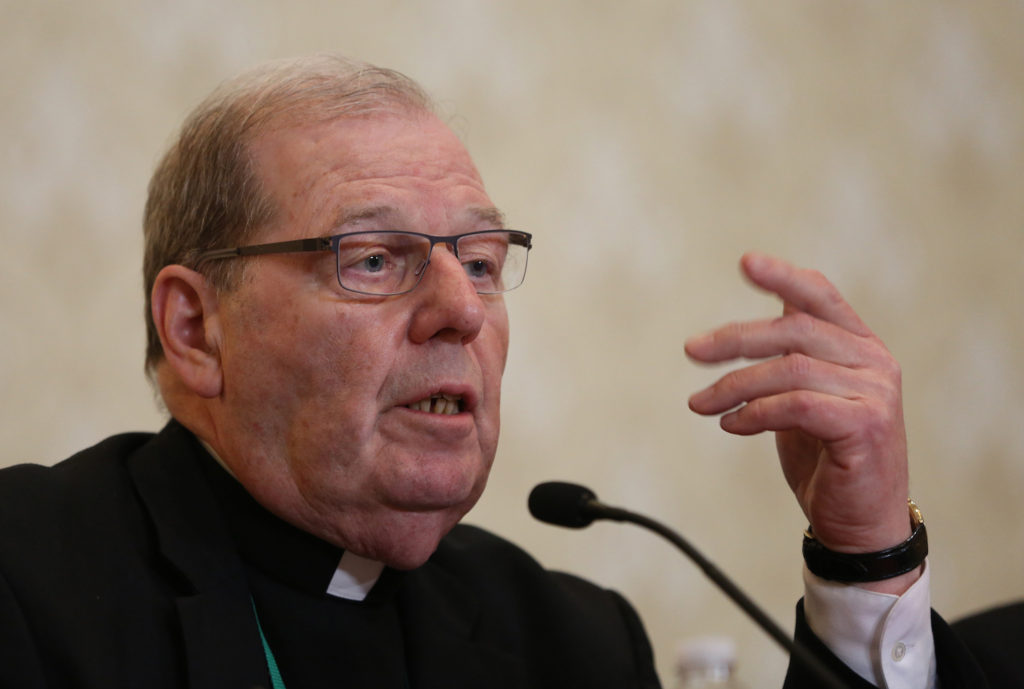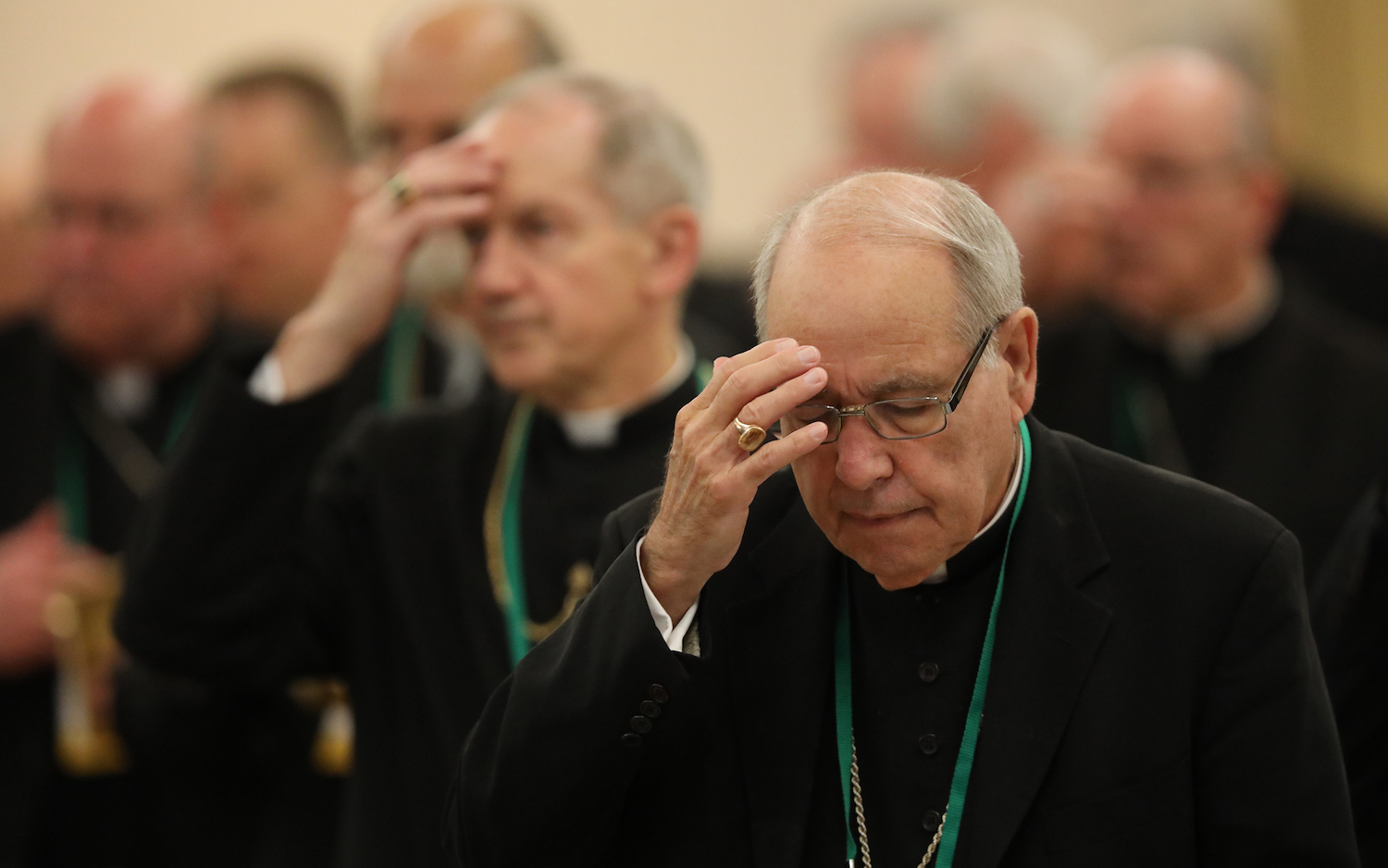BALTIMORE (CNS) — The U.S. bishops overwhelmingly approved a measure that would enable bishops to apply restrictions in the life and ministry of retired bishops accused of sexual abuse or who failed to take necessary measures to prevent abuse.
The 212-4 vote, with one abstention, was taken June 13, the last day of the bishops’ June 11-13 meeting in Baltimore. The measure required 180 bishops, or two-thirds of all U.S. bishops, for passage.
If a credible accusation of sexual misconduct has been reported against a retired bishop, his successor may act to limit the retired bishop’s scope of ministry, including the celebration of the sacraments and the right to be buried in the diocesan cathedral.
The “Protocol Regarding Available Non-Penal Restrictions on Bishops” was scheduled to be voted on when the bishops met last November. However, the Vatican requested they delay a vote until after the Vatican held a February meeting for presidents of bishops’ conferences worldwide to discuss the abuse crisis.

The U.S. Conference of Catholic Bishops’ Administrative Committee had decided last September that the development of a such a protocol would be helpful, said Bishop Robert P. Deeley of Portland, Maine, chairman of the bishops’ Committee on Canonical Affairs and Church Governance. With the delay of any possible vote on the document last fall, bishops had more time to offer suggestions on the document.
“The authority to impose penalties on bishops who have committed offensive acts by commission or omission rests solely with the supreme pontiff,” Bishop Deeley reminded his fellow bishops. But there are “existing instruments in canon law that are available to a diocesan bishop for imposing limitations.”
The document uses “bishop emeritus” to refer for any bishop who has retired for age or for a “grave cause,” or who was removed from office by the pope.
“The diocesan bishop will inform the bishop emeritus that public notice will be given of the situation and of any measures accepted by or applied to the bishop emeritus,” the document says. “Prior to issuing such public notice, the diocesan bishops will inform the apostolic nuncio of his communications with the bishop emeritus, and will confer with the apostolic nuncio on the measures to be imposed.”
Those restrictions can include “a statement to the effect that the bishop emeritus does not represent the diocese in any fashion or act on its behalf, and he is not to make public statements about alleged offenses, since these could result in further harm to victims or be detrimental to the faithful.”
A diocesan bishop may forbid a retired bishop to preach, which is any clergyman’s canonical right. “The diocesan bishop concerned may also request that the Apostolic See extend this prohibition more broadly or deny the exercise of the right entirely,” the document says.
Related story and all USCCB19 coverage
Diocesan bishops also may strip a retired bishop of the right to confer the sacrament of confirmation or to hear confessions. “The bishop emeritus can be denied the delegation necessary to witness marriages,” it adds. “The diocesan bishop may request of the bishop emeritus, in writing, that he refrain from the public celebration of other sacraments or rites of the church.”
While the U.S. bishops, in their “Directory for the Pastoral Ministry of Bishops,” state that retired bishops have the right to sustenance and retirement benefits, “the diocesan bishop may adjust the benefits given to a bishop emeritus who falls under this protocol,” the document said. “For instance, the diocesan bishop may decide that no funding for travel or secretarial assistance needs to be provided.”
As for the possibility of burial in the diocesan cathedral, “the diocesan bishop will prudently decide based on local circumstances whether the bishop emeritus will be buried in the cathedral church of if other arrangements should be made.”
Much in the protocol is dependent on the retired bishop agreeing to the requests and directives of his successor. Should he refuse, though, it adds, “the diocesan bishop can take measures within his competence, and strongly request further and swift intervention from the Apostolic See regarding matters outside his competence.”
In addition to penalties imposed by a local bishop, the president of the U.S. Conference of Catholic Bishops may, after consultation, ban such a bishop emeritus from attending USCCB meetings or serving on any USCCB body.
— By Mark Pattison, Catholic News Service.






